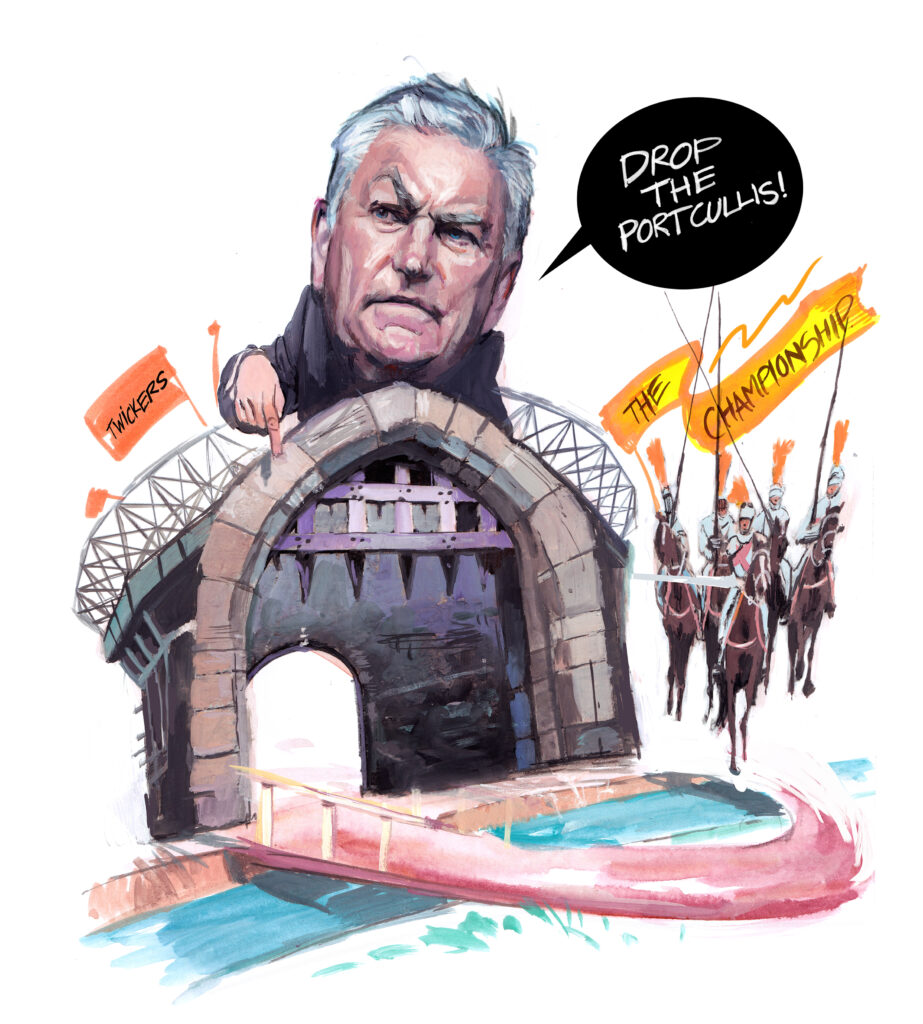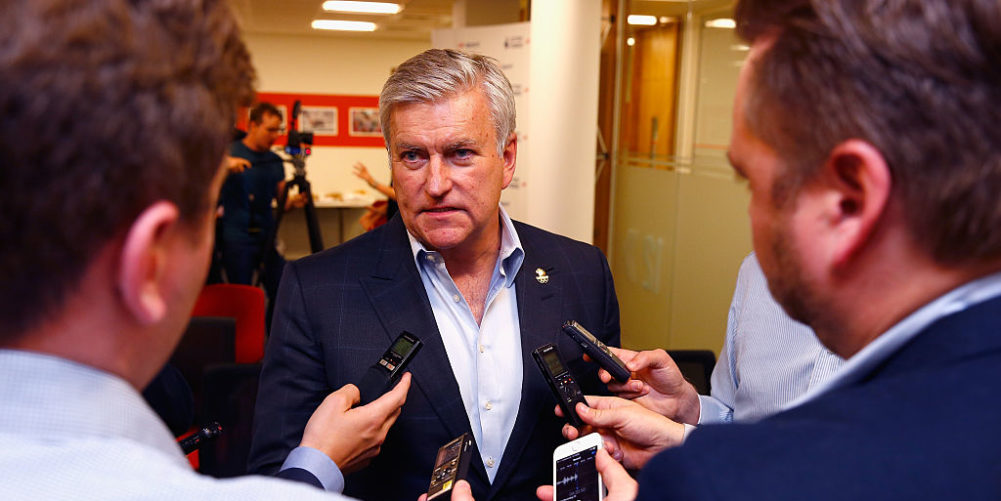There is a growing sense that some of those in key administrative roles at the top of the RFU have little understanding or empathy with the Rugby Union culture of this country.
RFU chief executive Bill Sweeney has already shown this by springing massive cuts on the Championship clubs with the season over halfway through, and now it has been compounded by the second tier pro league being included in his decision on Friday to call an end to the 2019-20 season.
So far, the Premiership has not been curtailed, with the RFU still in “active discussions” with PRL, but unable to enlighten us further.
This begs the question why the Premiership is being given special licence when the health issues surrounding coronavirus apply right across the board, and have otherwise seen blanket suspension of the game.
Sweeney's announcement seems precipitate in all sorts of ways. Why, when the UK government has already taken extensive measures, and no one is absolutely certain about exactly when the coronavirus epidemic will peak, or drop, is it necessary to make a hard and fast decision about when the season ends when you do not have to?
The argument in Sweeney's letter that the decision has been taken to “assist with long-term planning and provide clarity to the game at a time of continuous change” is riddled with holes.
There is nothing, while life in this country is on hold, to stop any club doing any long-term planning as it is – and it is what most will be doing irrespective of any RFU edict.
As for clarity, stroll on. Where is the clarity about whether the salary cap relegation imposed on Saracens by the PRL owners will be enforced – or can be enforced if the season is brought to a premature halt?
Where is the clarity about whether the RFU have plans to declare Newcastle, who have an 18-point lead on Ealing Trailfinders at the top of the Championship, as winners by default, with seven/eight regular-season matches remaining?
Where is the clarity about whether it is legal for a side who are not actually champions, like Newcastle, to be promoted?
Technically, Newcastle are not champions. If you end the season early, then Ealing, who are in second place, have a perfectly valid case for arguing that they could overhaul Newcastle, who they have yet to play a second time, and on whom they have a match in hand.
That is a potential eight to ten point turnaround, which would cut Newcastle's lead in half – so, while unlikely, it is possible they could be caught by Ealing, as opposed to it being a near mathematical impossibility. Ealing will quite rightly argue that stranger things have happened in sport.
In such circumstances why not hold fast and give yourself at least until the end of May to see if the virus dissipates enough to allow the remaining matches to be played in June, July and August?
The same applies to National One, where there is a tight finish, with Richmond being chased all the way by Rosslyn Park, Rams and Chinnor.
If it means a delay to the start of next season, then put it to the Championship clubs and those in the other leagues, and see whether there is a consensus view to start next season a month later, rather than dictating to them.
Sweeney has said that the RFU aim to come up with some more detail by mid-April, which makes you wonder why he started the ball rolling without having thought through where it would end up.
What Sweeney should have asked himself is if you can predict the outcome of leagues, why have them at all? He should then have contemplated the auxiliary question that, if you cannot predict them, how can you allow a side who are not champions, like Newcastle, to be promoted, and not anticipate a legal challenge from a rival club like Ealing Trailfinders?

At the same time, there have been reports that Sweeney has met with the PRL, and their owners' group, with a view to implementing a five-year moratorium on promotion-relegation.
This week I had an interesting conversation on ring-fencing with Steve Lloyd, the Championship's acting chairman.
Lloyd, who is chairman of Doncaster Knights, and takes over from Bedford Blues' Geoff Irvine in June, made it clear that he is trying to build bridges with the RFU rather than knock them down.
He told me: “My job at the moment is to work together with the RFU. It is about trying to reconcile in a proper way the situation we face, because clubs are so hard up.”
However, when I put it to Lloyd that he has been a staunch advocate of promotion-relegation – even preparing legal proceedings against Premiership funding inequality when Doncaster came close to being promoted two years ago – he reiterated his determination to retain it.
“It should be one up, one down. Doncaster have come up nine leagues, and do we want to make it ten, yes – and do we want that opportunity going forward, absolutely.”
Lloyd added: “I cannot accept that an ordained group of clubs should have sole rights to the Premiership. It is an anathema to me, and to my rugby club, and to many rugby people everywhere. I'd be committing Yorkshire, a county with more rugby clubs than any other, to a situation where they could not aspire to the top level. That would be totally unacceptable.”
That's how to make a timely, unequivocal policy statement – RFU take note.
NICK CAIN


























